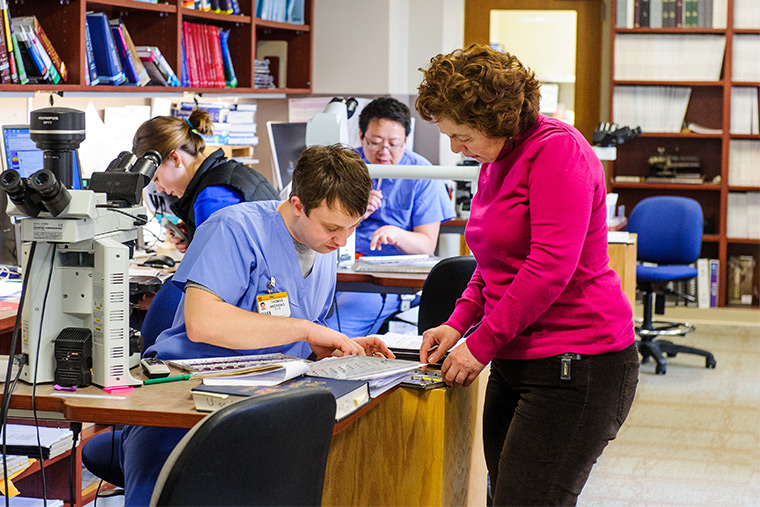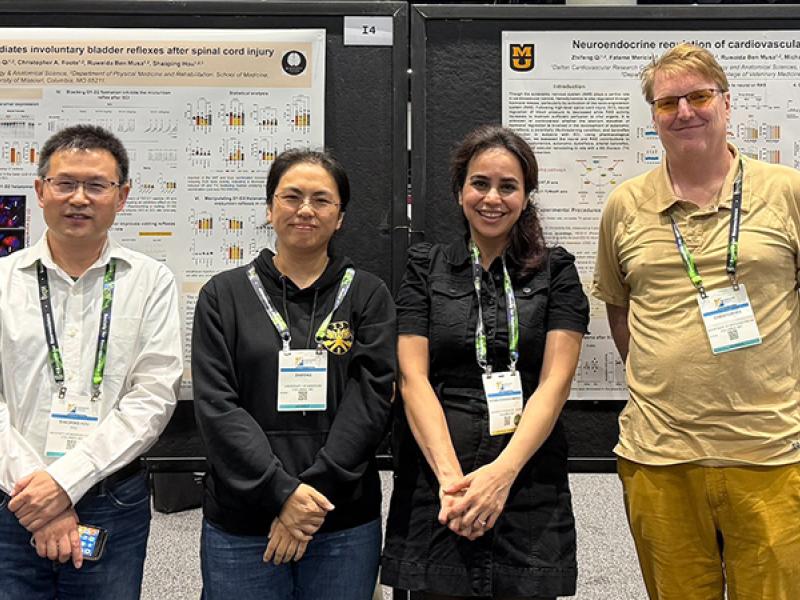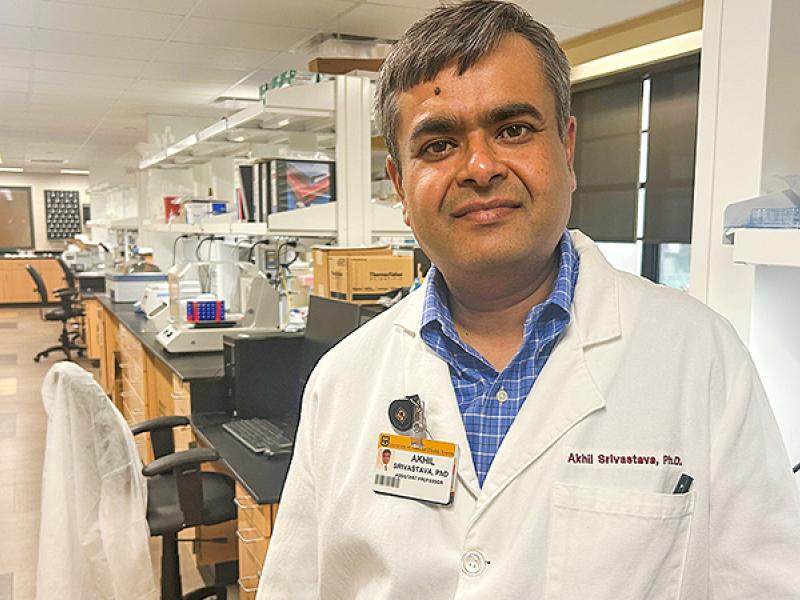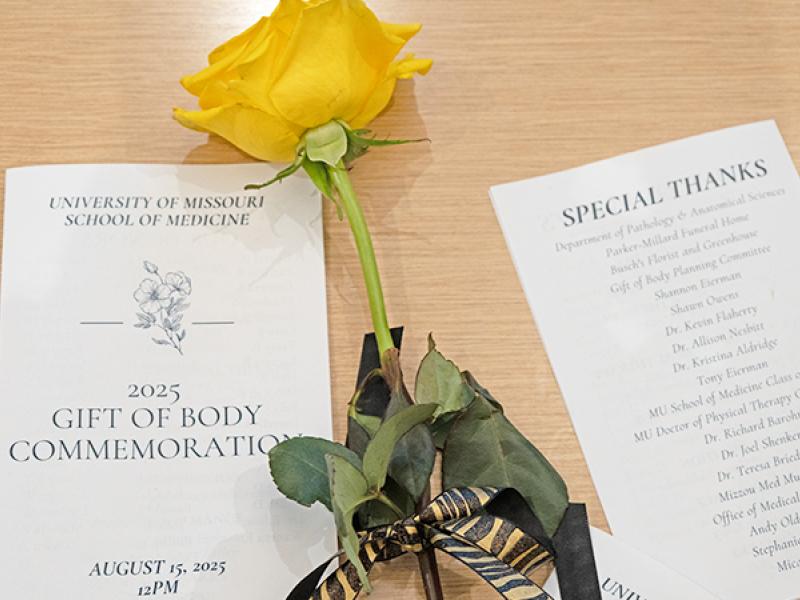The Department of Pathology and Anatomical Sciences considers the education of medical students, graduate students, resident physicians and undergraduate students to be one of its most important missions.

Anatomy and Pathology Courses
Faculty use human donors through our Gift of Body program to help students understand the human body and pathologic processes.
Courses are offered to undergraduate, graduate and medical school students.
Undergraduate Education
The Department of Pathology and Anatomical Sciences offers training in clinical human anatomy for undergraduates, pre-health professional students, as well as specific anatomy courses for physical therapy students.
For additional information regarding undergraduate courses, please visit the University of Missouri’s academic catalog.
We also offer course credit for individual undergraduate research in departmental labs with instructor consent. For additional information regarding research, please contact our office at 573-882-1201.
Medical Education
Educational efforts in the School of Medicine include one-on-one surgical pathology teaching at the microscope, human donor dissection, clinical pathology laboratory training, daily faculty-led pathology conferences for resident physicians, forensic pathology experiences, and small group tutoring within the setting of our patient-based learning medical school curriculum.
These course offerings are only available to students enrolled in the School of Medicine.
Graduate Programs
The broad range of expertise among faculty in our interdepartmental graduate programs affords a variety of opportunities for individuals pursuing their advanced degree (MS, PhD). All graduate programs in the Department of Pathology and Anatomical Sciences are research-based. Students may arrange to work with individual faculty for independent study or to conduct research.
Residency Program
The department also has an ACGME-approved residency program in anatomic and clinical pathology, leading to AP/CP board certification for physicians after graduation from an accredited medical school. The program includes tracks for traditional four-year integrated training in both anatomic (AP) and clinical pathology (CP), and for three-year AP-only or CP-only training.
Fellowship Programs
Our fellowship programs are a year-long educational experience that provide the opportunity to either rotate through a number of services within the pathology department through our Post-Sophomore Fellowship program or an immersive, comprehensive training through our Gastrointestinal (GI) Pathology Fellowship program.





